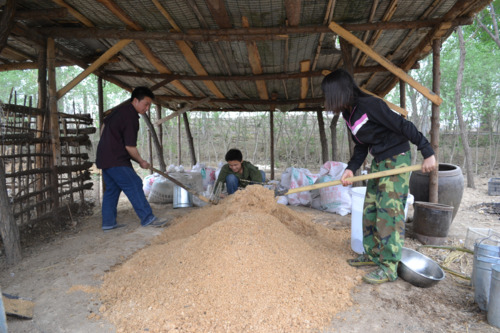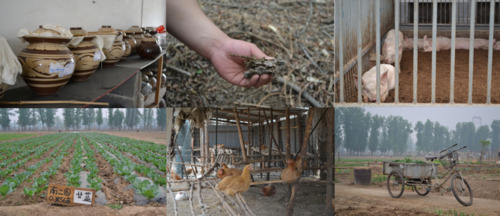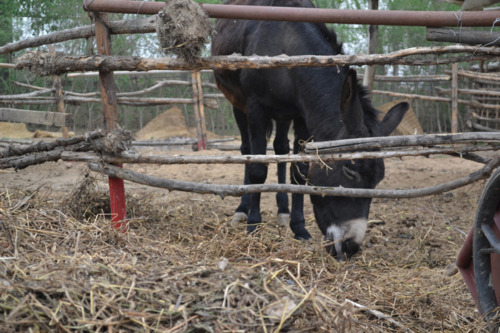
With all the US press reports of wide-spread corruption, disaffected youth, environmental degradation, political turmoil and military posturing, it is not hard to understand why an increasing number of Americans see China in a negative light. My own impressions of China always take a dip when I am away from the country for an extended period. But there’s a lot more happening in China than you see in the headlines.
One new development you may not have heard about is the growth of Chinese Community Supported Agriculture (CSA). All across the country, small but steadily growing groups of dedicated enthusiasts are working to walk China back from dependence on modern farming techniques that rely heavily on synthetic fertilizer, herbicides and pesticides, confined animal feeding operations and genetic engineering. In the process they are rediscovering and preserving traditional Chinese farming techniques that were on the verge of extinction. Their goal is nothing less than to return China to sustainable agricultural and animal husbandry practices rural China used to feed the empire for centuries without damaging always precious soil and water resources.

This week I had the good fortune to visit one of Beijing’s more successful CSA farms and to meet the amazing group of young people running it. Most were college educated and had left the urban careers they landed shortly after obtaining their degrees to return to the rural environment where many were raised. These new traditional farmers were dedicated, but not dogmatic, aware of the uphill climb ahead but convinced of greater success in the long term. As one ex-cop now working on the cooperative explained, “Farmers all across the country now realize what they’ve done to their land and water with the modern techniques, and they are slowly coming back around to what was clearly a more sustainable way of working their land”.
Management, more than marketing, is one of the key challenges, according to one member of the group. Public concern for food safety, which has become epidemic in China in the wake of an endless stream of reports on safety problems with the milk, meat, fruits and vegetables on Chinese grocery store shelves, has created very strong demand for verifiably organic foods. The newly affluent families in large urban cities like Beijing are buying everything the farm can produce. But the price is too high for average Chinese families already finding it a challenge to cope with rising food prices.
As China is completing the massive migration of its rural population to its urban centers that has taken pace over the last two decades, most of China’s rural labor force is giving up farming for more lucrative urban occupations. Land holders are selling off their family plots to large cooperatives. The government is encouraging the sales, in an effort to consolidate holdings and apply “modern” methods. Unfortunately, according to an agronomy student from Guangzhou who was interning on the farm, “most of my classmates think I am crazy for turning back to traditional methods”. But the government and the universities are supporting community supported traditional agriculture, and if enough young educated people start to take an interest in farming, there is plenty of opportunity to enter the market, given all the land use rights being surrendered by migrants moving to the cities. If this new wave of young organic farmers can find an economic model for sustainable traditional agriculture that can reach beyond the niche demand for safe food created by China’s nouveau riche, there is a real chance they can take rural Chinese life and society in a very exciting and hopeful new direction.

